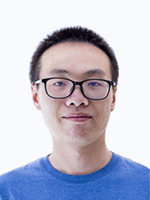半导体纳米结构中室温自旋增益和光与物质相互作用的光谱学研究
日期:2023/09/21 – 2023/09/21
学术讲座:半导体纳米结构中室温自旋增益和光与物质相互作用的光谱学研究
主讲人:Huang Yuqing, professor at Institute of Semiconductors (IOS), Chinese Academy of Sciences
时间:2023年9月21日(周四)上午10:00-11:00
地点: 龙宾楼414B会议室
讲座摘要
Optical spectroscopies give noninvasive probe of physical properties of materials and devices. By exploring extra degree of freedom, for instance time-, angle-, polarization-resolved microscopic optical spectroscopies, one may gain comprehensive understanding of carrier and spin dynamics as well as light-matter interactions in a semiconductor nanostructure. In this talk, I will introduce our research efforts in the past few years, including designing and realizing efficient generation and amplification of electron spin polarization with optical means in III-V semiconductor nanostructures. I will showcase the use of optical means to understand the spin dynamics、nonlinearity in such room-temperature spin amplifier. In the second part, I will introduce our studies on perovskite nanostructures, including perovskite nanoplatelet and self-assembled perovskite metasurface in which the emission kinetics, polarization, direction, etc. are strongly modified through micro-/nano-scale light management.
主讲人简介
 Huang Yuqing is currently a professor at Institute of Semiconductors (IOS), Chinese Academy of Sciences. He graduated with B.Sc. degree from Peking University in 2012. In 2019, he received his PhD degree from Linköping University (Sweden) under the supervision of Prof. Weimin Chen. He then received postdoctoral fellowship from the Knut and Alice Wallenberg foundation (KAW) in Sweden, which support his postdoctoral research at Nanyang Technological University (Singapore) with the guidance from Prof. Xiong Qihua from 2019 to 2021. In 2023, he received funding for Distinguished Young Scholars from National Natural Science Foundation of China and worked at IOS since then. His research focus on studies of spin dependent phenomena in semiconductor nanostructures with optical spectroscopies.
Huang Yuqing is currently a professor at Institute of Semiconductors (IOS), Chinese Academy of Sciences. He graduated with B.Sc. degree from Peking University in 2012. In 2019, he received his PhD degree from Linköping University (Sweden) under the supervision of Prof. Weimin Chen. He then received postdoctoral fellowship from the Knut and Alice Wallenberg foundation (KAW) in Sweden, which support his postdoctoral research at Nanyang Technological University (Singapore) with the guidance from Prof. Xiong Qihua from 2019 to 2021. In 2023, he received funding for Distinguished Young Scholars from National Natural Science Foundation of China and worked at IOS since then. His research focus on studies of spin dependent phenomena in semiconductor nanostructures with optical spectroscopies.
